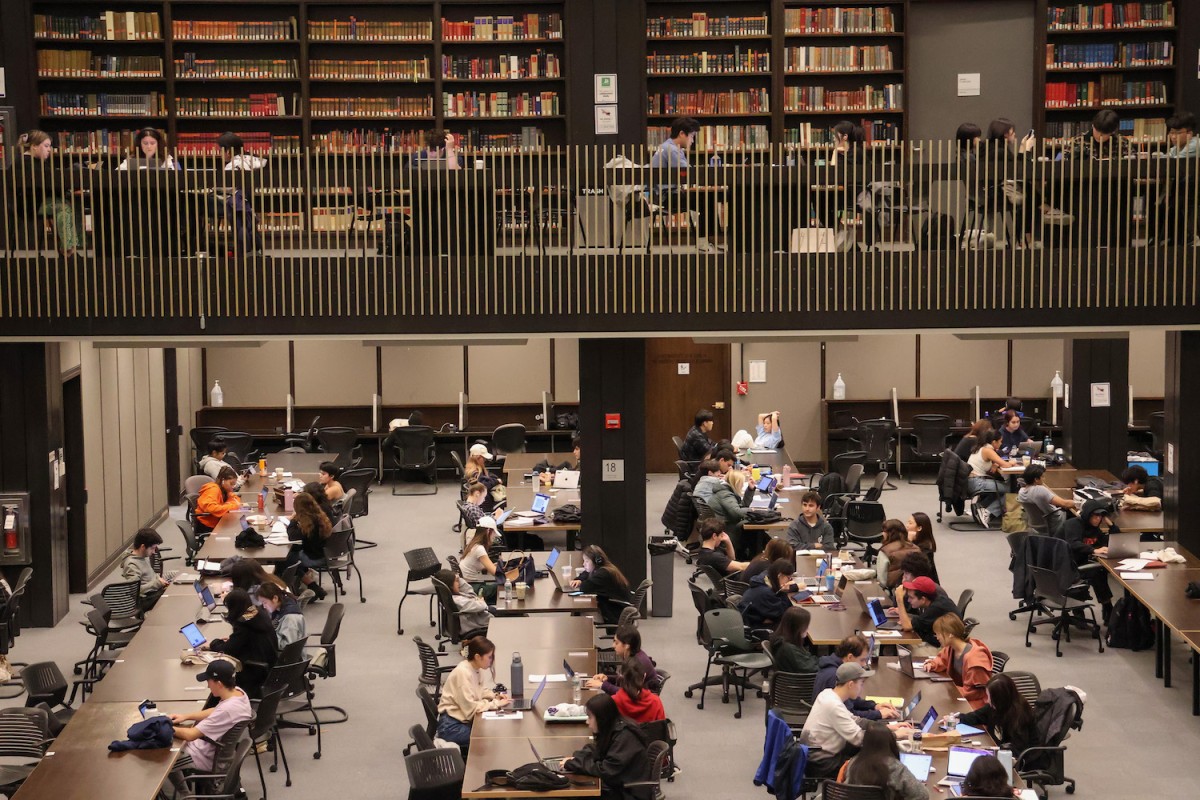Ah, midterm season — the time of year when you can enter any study space and feel the test anxiety in the air. With Bobst Library being open 24 hours a day, students can conveniently balance study sessions with power naps while cramming for exams. Walk into any floor of Bobst during midterms and you’ll be sure to find some students intensely hunched over their laptops and others fast asleep, a half-studied Quizlet open on their desk.
This past weekend, I unfortunately fell to an infamous midterm tradition: pulling an all-nighter. At first, I thought it would be productive. I prepared a to-do list, and I truly believed not sleeping would be worth the amount of work I’d get done.
I learned the hard way that I was wrong — pulling an all-nighter to study for exams is not worth the harmful effects on your mind and body.
All-nighters encourage procrastination and poor time management, leaving students to deal with revenge bedtime procrastination that impacts productivity for the next day. Students who put off studying may decide to pull an all-nighter to make up for lost time, making it an appealing but ill-advised option. The normalization of losing sleep to cram for a test reinforces this cycle of procrastination, keeping students from developing healthier study habits. Students’ performance also suffers when they mismanage their time — exam results are better when students study over time and get proper rest.
“Because I have so many assignments due at the same time, I get overwhelmed and continue to put them off later in the day,” said NYU sophomore Melanie Polanco. “Sometimes it feels like even if I do one part of an assignment, I still have so much more to do and I just keep putting it off.”
The damaging effects of late nights on your health are also concerning. Lack of sleep can negatively impact your ability to focus and problem solve, as well as your mood and reflexes. Long-term sleep deprivation has also been linked to a number of health problems, including depression. Consistently staying up late to study, despite making you feel like you’re being more productive, will likely just lead you to absorb less information and produce worse quality work.
With the constant pressure to be productive and imposter syndrome that comes with the undergraduate experience, pulling all-nighters can sometimes feel like the only option you have. It can be agonizing to worry that you will fall behind or do poorly compared to your peers, causing you not to prioritize your sleep. Every student has different limitations and capabilities, and there is no one-size-fits-all method of learning. You should worry more about what study habits work best for you; don’t feel like you need to be losing sleep just because the person who sits next to you in class is.
NYU sophomore Jasley De Jesus does her best to not give into the pressure of late-night — and subsequent early morning — studying.
“I would do worse in classes and that would exacerbate my imposter syndrome since I’m not able to give my best,” she said.
Students frequently stay up all night studying in an effort to get better grades, and some have no choice. All-nighters may be the only viable option for students with packed class schedules, work and extracurricular commitments. We need to remember that considering the number of activities we’re balancing, it isn’t always possible to do perfectly on exams. Instead, we should focus on learning as much as we can while still prioritizing our health and well-being.
It’s time to break free from the expectation of pulling all-nighters. All-nighters are a counterproductive strategy for learning, and it’s more important to take care of yourself this midterm season. Please, sleep.
WSN’s Opinion section strives to publish ideas worth discussing. The views presented in the Opinion section are solely the views of the writer.
Contact Molly Koch at [email protected].





















































































































































